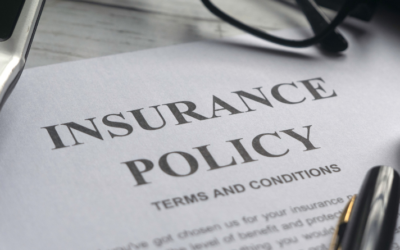What is a Tied Pub Tenancy?
Taking on a tenancy agreement is the easiest way to get your foot in the door, with shorter rental periods lasting for 2-5 years.
During the tenancy, you’ll rent the premises from the landlord (usually a brewery or large pub company that owns 500 or more similar properties) including all of the fixtures and fittings. This covers everything from stock, to glassware, cutlery, fuel and other essential supplies. If anything needs to be replaced or repaired, your landlord has a joint responsibility to remedy it.
Pub tenancy agreements are often ‘full tie’ where the tenant is tied to the landlord. This means you’d only be able to purchase stock like ales, cider and other drinks from the Pub Owning Company (POB). In some cases, you might be able to negotiate a ‘partial tie’ agreement that gives you more freedom to purchase from other breweries.
When you enter into a pub tenancy agreement, you’ll remain self-employed and must take on responsibility for anybody else you employ. At the end of the lease, if you decide to move on from the pub you will not be able to sell on the business or transfer the lease to somebody else.
What is a pub lease?
A pub lease, or a leasehold agreement, gives the tenant more flexibility when it comes to growing the business and making a profit. Leasehold agreements are usually longer than tenancy agreements, lasting for around 10 years, with rent reviews at regular intervals.
Whilst a lease gives you more freedom, you’ll also take on more of the financial burden. You’ll become solely responsible for any repairs and building maintenance. However, a lease option also increases your prospects being able to build a successful business and making a good return if you sell it on.
With a leasehold agreement, you are free to sell your business once your lease expires, or you can transfer it to another person. This gives you the freedom to build up your business as much as you like and make a profit on your investment.
Tenants in a leasehold agreement are also able to request to be free of tie and pay rental market rates only. When this happens, the tenant continues to rent the premises from the landlord but they are no longer bound to buy stock from the POB.
Buying a pub outright
The third way to own your own pub is to buy it outright as a freehold purchase. This means the pub is yours to do as you like, without any landlord to answer to. You can stock from any brewery, grow your business, and make any physical changes to the fixtures and fittings.
Buying your pub outright is considerably more costly than the other options mentioned above, and you’ll also be solely responsible for any repairs or maintenance work that needs doing.
What is the Pub Code?
The Pub Code etc regulations 2016 came into effect in July 2016 to regulate the relationship between large pub owning businesses (that own at least 500 tied pubs) and pub tenants. The code regulates the relationship between landlords and tenants, keeping them fair and lawful. It ensures that tenants are in no-worse position than if they were free of tie.
The Pubs Code entitles tenants to
- Receive the information they need about taking on a pub, or new terms and conditions. Including full information about the type of tenancy or licence, a full and clear description of the premises, and information about fixtures and fittings.
- Have their rent reassessed if they haven’t had a rent review for 5 years
- Request to go free of tie and pay market rent only, in certain circumstances
The Pubs Code Adjudicator (PCA) is the independent regulator responsible for enforcing the Pub Code etc. Regulations. The PCA has the power to resolve disputes between tenants and landlords.
What is the Pub Owning Company’s Responsibility?
If you rent your pub via a short-term tenancy agreement or a leasehold agreement, your landlord will have certain obligations that it must fulfil under the Pub Code. Following these regulations, the Pub Owning Business must provide the following information
- Information about the respective maintenance and repair obligations.
- Clearly explain the tenant’s obligations in relation to the purchase of tied products and services.
- Explain whether the tenancy may be assigned or sold.
Insuring your pub
When it comes to insuring your pub and its contents, always read your contract carefully. In some cases, the POB will provide insurance for the building itself and require the tenant to take out other insurance policies. This could include contents insurance,
business insurance, and public liability insurance. Sometimes the POB will not provide any cover, leaving the tenant to arrange all insurance policies themselves.
The Pub Code states that the POB must highlight the tenant’s rights in regards to insurance. This includes the right to price match any insurance policy provided by the POB.
The Bateman Group provides insurance to hundreds of pubs around the UK. If you are a tied tenant and would like to price match your provided insurance policy our advisors can help. Call 01926 495 113 or use our contact form to request a pub insurance quote.



